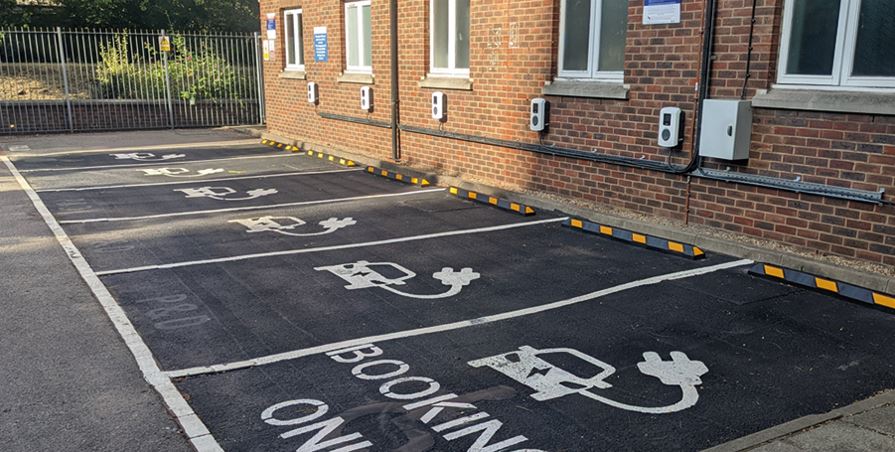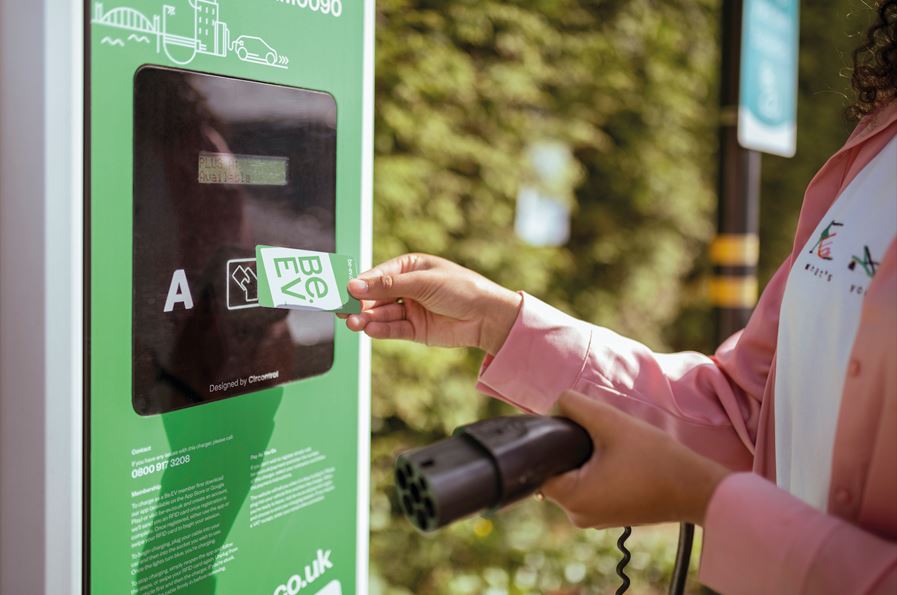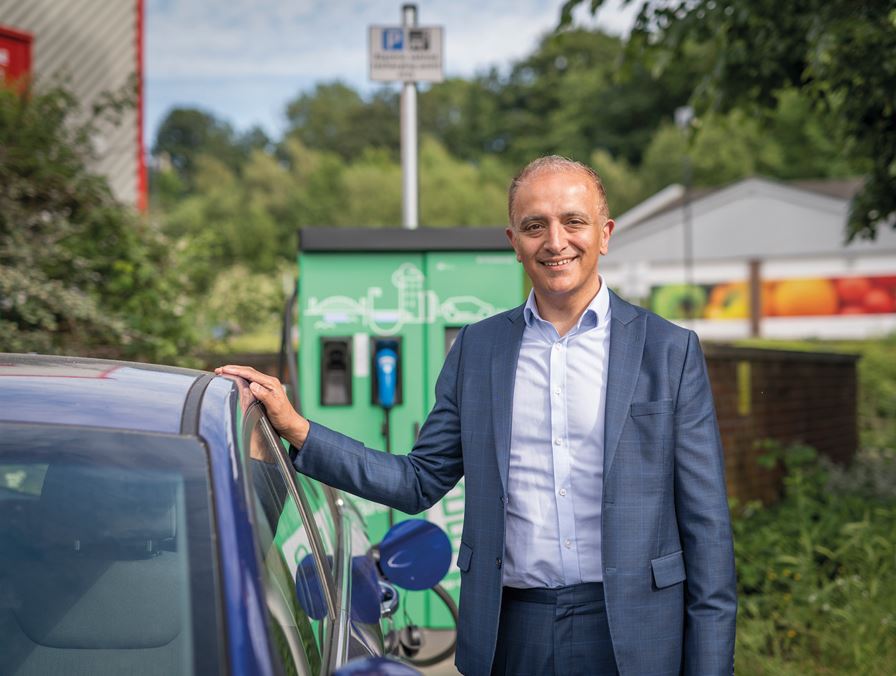We look at how the NHS needs to up its game by introducing more electric vehicle charging points in order to drive carbon efficiencies
In just seven years’ time the Government will impose a ban on the sale of new petrol and diesel vehicles in favour of a fully-electric road transport system. But, in order to meet this deadline, and achieve the associated carbon reduction targets, a complex network of electric vehicle (EV) charging stations will be needed. In 2022, EV specialist, Connected Kerb, published a flagship report – How to meet the UK’s EV charging needs by 2035 – which called on the Government to lead the charge towards public sector electrification by installing convenient, affordable, and reliable charging infrastructure across one of the UK’s most-prized assets – the NHS. It states: “The NHS is an obvious place for an ambitious EV infrastructure project. “It has over one million employees, a large fleet of vehicles, and operates nearly half a million parking spaces where chargers could be installed. “A deployment of this scale would be the largest in the world and provide a blueprint for other projects.”
THE CLOCK IS TICKING
Asif Ghafoor, chief executive and co-founder of charging infrastructure provider, Be.EV, adds: “The 2030 ban on new petrol and diesel vehicles is looming and the infrastructure needs to be in place to support hospital staff and visitor needs. “From first conversation to working chargers can take two years and the clock is ticking – but burying their heads in the sand is not an option.” Currently, NHS England alone operates around 436,900 parking spaces across its hospital sites, but recent figures suggest that only 60% of sites have at least one EV charging point available, while 24% of trusts say they have insufficient electrical capacity for the number of units they forecast they need. The Connected Kerb report states: “The potential to make the NHS the standard bearer of public sector electrification is huge and the starting gun has already been fired. “However, like with many public sector projects, aside from funding, the only limiting factor is ambition.”
MEETING THE CHALLENGE
And it calls for a target deployment of EV chargers in 25% of all NHS staff bays, with 50,000 made available within five years. But there are hurdles to overcome to realise this ambition. Firstly, trusts need to find the space to install charging units. Then they need to ensure they have the electrical infrastructure available without disrupting the mains supply. And they need to find the funding to support investment.
The report sets out three main funding routes for the NHS:
Ghafoor said: “Charging infrastructure can be provided for free, including power upgrades. “They are also a revenue opportunity that hospitals can benefit from, with chargers paying for themselves over the course of their service life. “Many suppliers will offer a revenue share, which incentivises them to ensure chargers are always in good working condition, and this provides steady income for hospital estates.” To help NHS trusts overcome some of these barriers, companies like Connected Kerb are offering turnkey solutions covering everything from choosing the right technology and site selection, to maintenance and funding applications. Earlier this year, as part of its Green Plan, Central London Community Healthcare NHS Trust installed EV charging stations across a number of its sites in London and Hertfordshire, which will be managed by EB Charging under a three-year contract. And NHS Forth Valley Health Board has rolled out 16 chargers in patients and visitor car parks at Forth Valley Royal Hospital, bringing the total number of points across its estate to 36. The publicly-available EV points are part of the Charge Place Scotland network, managed by SWARCO on behalf of the Scottish Government, and operating on a metered pay-per-use basis.

EDUCATION, EDUCATION, EDUCATION
But, to move forward, Ghafoor said NHS sustainability leads need to be educated on the benefits and challenges associated with EV charging provision. He told hdm: “There’s a surprising lack of education and trusts are paralysed by the number of options available to them. “With a range of patients and varying staff shifts, a mixed charging solution is the best approach. “Fast (all day dwell), rapid, and ultra-rapid chargers (10 minutes charge) will all serve a different purpose, allowing every type of visitor to charge their car effectively. “Staff can plug their car into a fast charger to charge throughout their shifts, for example, while rapid chargers are perfect for patients coming in for an X-ray or routine check-up. “But hospitals don’t need to rush to install all their charging infrastructure at once. “We suggest a phased rollout as trying to install too many chargers at once can see hospitals hitting power constraints, and empty charging spaces will frustrate non-EV drivers. “ And, once installed, the chargers need to continue to work 24/7, 365 days a year, with clear maintenance plans. Ghafoor concludes: “There’s a lot of ‘wait and see’ from hospitals. They’re holding out to see how the EV market plays out, but the influx of EVs is inevitable. “It’s only a matter of time until staff and patients start asking about charging facilities, and hospitals need to start moving quicker to make sure they don’t miss the EV opportunity.”

